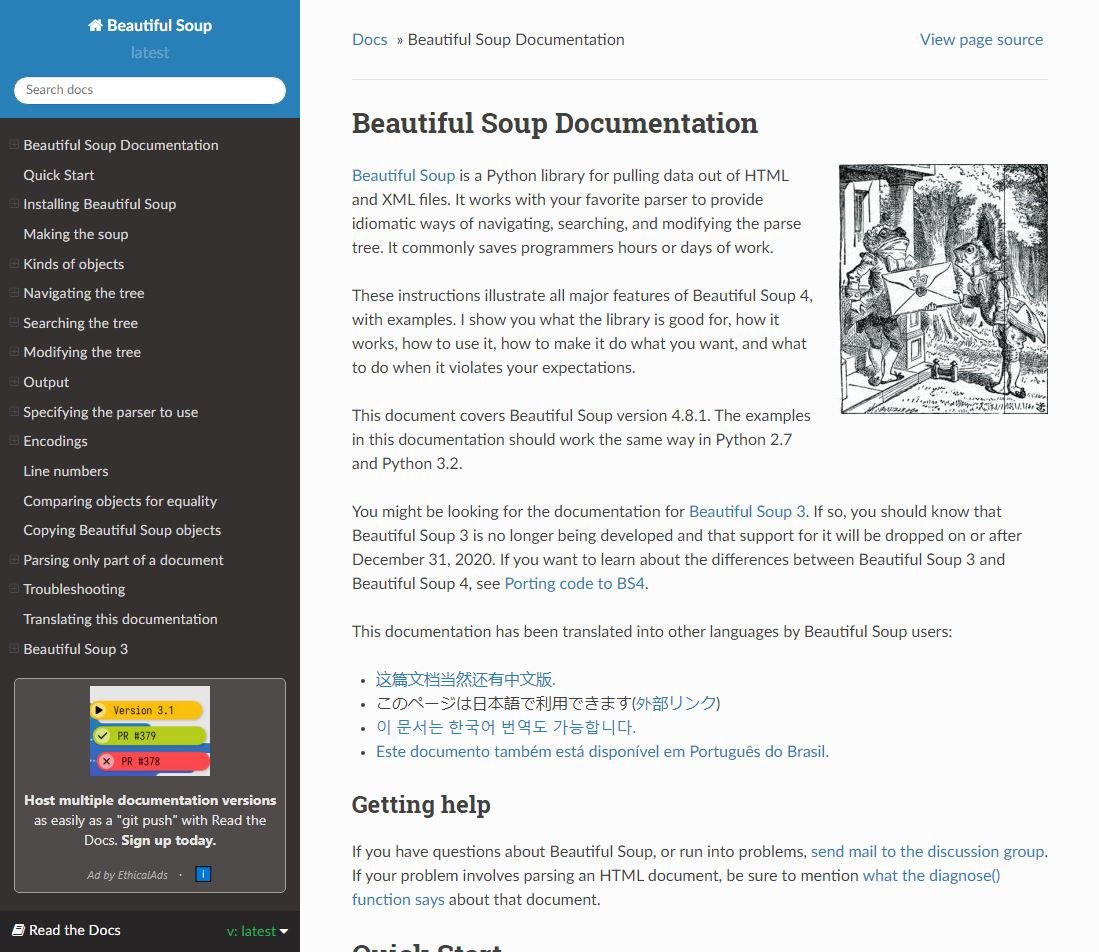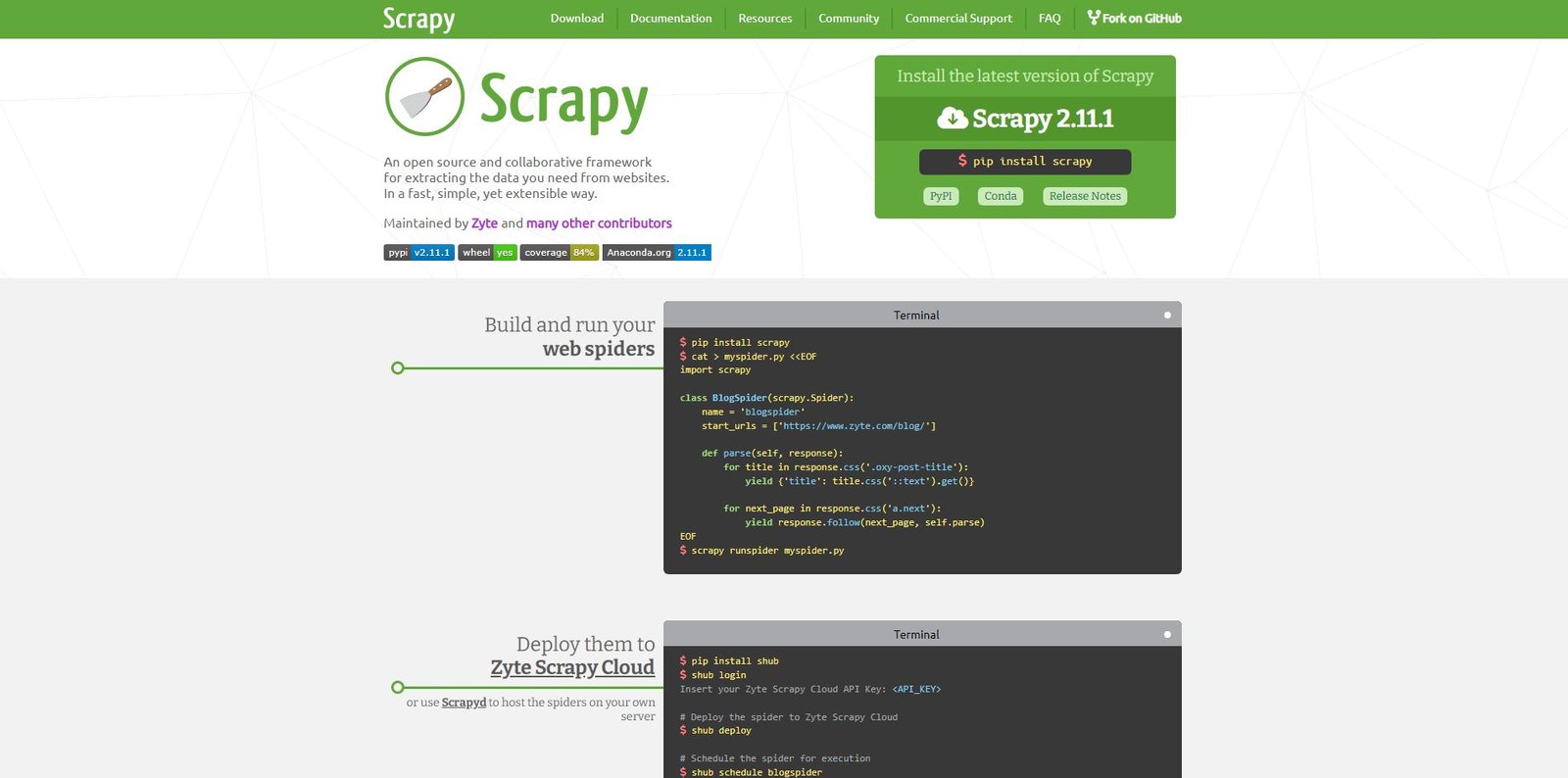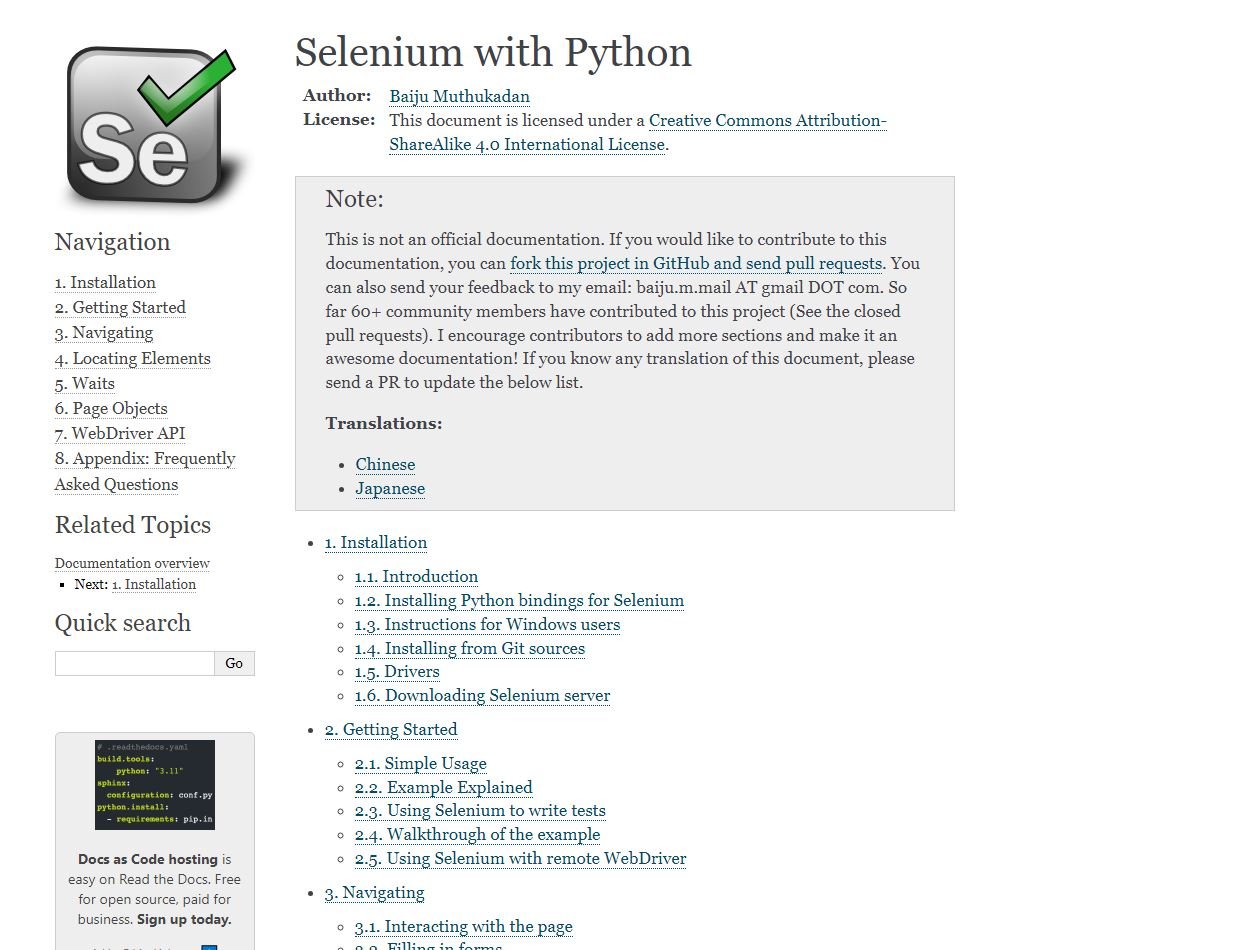Best Web Scraping Tools Python
Introduction
One of the most important methods for obtaining useful data from websites is now web scraping. In online scraping, having the appropriate tools may make all the difference, whether you’re a researcher, data scientist, or business owner. There are a few Python utilities that are very useful and adaptable. Let’s examine the top Python web scraping tools that will enable you to extract data more quickly.
1. Beautiful Soup
A Python library called Beautiful Soup makes it simple and rapid to parse HTML and XML files. It offers easy-to-use techniques and Pythonic idioms for working with, traversing, and altering parsed parse trees. Beautiful Soup’s sophisticated syntax makes web scraping in Python simple, even for novices. It stands out as one of the best options for web scraping fans due to its ability to handle jumbled HTML and XML data well.

2. Scrapy
Python web scraping is made possible using the robust and adaptable Scrapy framework (best web scraping tools python). It offers an entire suite of tools for analyzing, retrieving, and storing data in several forms from websites. Because of its scalable and adaptable architecture, Scrapy may be used for projects of any scale. It is perfect for scraping massive amounts of data from several sources since it has strong error-handling features and built-in support for asynchronous networking.

3. Selenium
A well-liked automation tool for testing web apps is called Selenium. But it may also be used for online scraping operations including dynamic material or websites with a lot of JavaScript, which goes beyond testing. With Selenium, you can automate web page operations including clicking buttons, completing forms, and navigating around pages. This makes Selenium an indispensable tool for data scraping from contemporary websites that mainly rely on client-side rendering.

4. Requests-HTML
To offer a seamless online scraping experience, a Python package called Requests-HTML combines the power of PyQuery with the simplicity of Requests. Its jQuery-like syntax makes it easy to use for both HTTP querying and HTML information scanning. Requests-HTML is a handy tool for Python developers since it makes simple web scraping tasks like extracting text, links, and attributes from HTML documents easier to execute.

Python Web Scraping Tutorial
Having discussed the top Python web scraping tools, let’s have a look at a step-by-step guide on utilizing them to do web scraping. Here are a few Python scripts that scrape the web.
Installing Necessary Libraries
Make sure Python is installed on your machine before we start. Installing the necessary libraries may be done with pip, the package manager for Python. Execute the following instructions after opening a terminal or command prompt:
pip install beautifulsoup4 scrapy selenium requests-html
Understanding HTML Basics
It’s crucial to comprehend HTML document structure in order to scrape data from websites efficiently. The common markup language used to create web pages is called HTML (Hypertext Markup Language). It is made up of elements that are represented by tags, such <div>, <p>, <html>, <head>, and <body>. Attributes that offer further details about the element can be added to each tag.

Basic Web Scraping with Beautiful Soup
Beautiful Soup offers straightforward ways to explore and navigate the parse tree, making it simple to extract data from HTML texts. Let’s begin with a simple illustration of how to use Beautiful Soup to scrape data from a webpage:
from bs4 import BeautifulSoup
import requests
# Send a GET request to the webpage
url = 'https://example.com'
response = requests.get(url)
# Parse the HTML content
soup = BeautifulSoup(response.text, 'html.parser')
# Extract the desired data
# (code to extract data goes here)
Advanced Web Scraping with Scrapy
Scrapy is a powerful web crawling and scraping framework that allows you to build complex spiders to extract data from websites at scale. Here’s an example of how to create a simple Scrapy spider:
import scrapy
class MySpider(scrapy.Spider):
name = 'myspider'
start_urls = ['https://example.com']
def parse(self, response):
# Parse the response and extract data
# (code to extract data goes here)
Web Scraping with Selenium
Selenium is a web automation tool that allows you to control web browsers programmatically. It’s useful for scraping websites that require interaction with JavaScript or dynamic content. Here’s how you can use Selenium to scrape data from a webpage:
from selenium import webdriver
# Initialize a web browser (e.g., Chrome)
driver = webdriver.Chrome()
# Open a webpage
driver.get('https://example.com')
# Extract data using Selenium commands
# (code to extract data goes here)
# Close the web browser
driver.quit()
Building a Web Scraper
Writing code to extract data from a target website, comprehending its structure, managing numerous edge circumstances, and identifying the target website are all phases in the process of building a web scraper. Below is a general process outline:
- Select the Target Website: Decide the website you wish to extract data from.
- Analyze the Website Structure: Look through the website’s HTML structure to find the sections that hold the information you want.
- develop Scraping Code: To develop code that retrieves data from the target website, use the relevant web scraping technology (such as Beautiful Soup, Scrapy, or Selenium).
- Examine the scraper: To make sure the scraper performs as anticipated and adapts well to different situations, test it.
- Launch the Scraper: Launch the scraper to retrieve data from the intended website and save it in an appropriate format (such as a database, CSV file, or JSON file).

Webscraper Python: Tips and Tricks
Taking use of vast datasets, dynamic content, or anti-scraping methods might make web scraping more difficult. The following pointers will improve your Python web scraping experience:
- Managing Dynamic material: To scrape webpages containing dynamic material produced by JavaScript, use technologies such as Selenium or Requests-HTML.
- Steer clear of detection: Use user-agent strings, delay messages, and rotate IP addresses to evade website detection and blocking.
- Data Storage and Management: To effectively manage massive amounts of data, store scraped data in an organized manner (such as a database, CSV file, or JSON file).
Conclusion
In conclusion, Python provides a vast array of online scraping tools and modules, making the process of extracting data from websites simpler than before. The top Python web scraping tools included in this post may assist both novice and seasoned developers in handling a variety of scraping jobs quickly and successfully. From the immense ocean of data available on the web, you may extract important insights by using the appropriate tools and adhering to best practices.
Best web scraping tools python- FAQs
Is Python best for web scraping?
- Python is a widely used language for web scraping because of its ease of use, adaptability, and plenty of libraries. The relative merits of Scrapy and BeautifulSoup will rely on your own requirements and tastes.
Is Scrapy better than Beautiful Soup?
- A robust and effective web crawling system called Scrapy was created expressly for extracting vast volumes of data from websites. It has capabilities including scalable architecture, built-in support for managing robots.txt, and asynchronous queries. Scrapy could be a better option if you need to scrape data from several pages or websites, or if you’re working with sophisticated scraping activities.
- In contrast, Beautiful Soup is a simple and light weight library for parsing XML and HTML texts. It works well for simpler scraping jobs or for situations when you need to quickly extract data from websites without juggling the intricacies of a comprehensive framework like Scrapy.
What is the easiest web scraping library for Python?
- Because of its simple API and easy-to-understand syntax, Beautiful Soup is frequently regarded as the most user-friendly web scraping library for Python, especially for novices or those with less complex scraping requirements.
Can you do web scraping in Python?
- Yes, you can use libraries like Beautiful Soup, Scrapy, or Selenium to accomplish web scraping in Python.
Is Scrapy faster than Selenium?
- In terms of performance, Scrapy often performs scraping operations including HTML parsing and website data extraction quicker than Selenium. This is due to the fact that Selenium is essentially a browser automation tool that mimics user interactions, but Scrapy is a specialized online scraping framework optimized for speed.
- Your needs will determine whether Selenium or BeautifulSoup is superior. Because Selenium can interact with the page in a manner similar to that of a human user, it is helpful for scraping dynamic websites that largely rely on JavaScript. However, static websites or situations where you only need to extract data from the HTML structure are better suited for BeautifulSoup.
